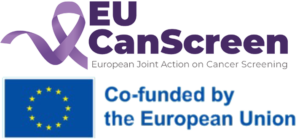Outreach strategies to other vulnerable populations, including transgender populations
Summary
Individual and systemic barriers to cervical and breast cancer screening among gender minorities and other vulnerable populations will be examined within three subtasks:
6.6.1. A review of screening legislation and practices for cervical and breast cancer screening for gender minorities in each EU country. New EU-wide recommendations will be developed based on the information provided by this.
6.6.2. Development and piloting of an opt-in registry platform for inviting individuals who cannot be invited to the screening programs via population registries.
6.6.3. New inclusive screening materials with gender-neutral language (invitations, instructions, result letters) and educational materials for healthcare professionals will be created to minimize any discrimination and ensure safe healthcare visits for individuals in vulnerable positions. Campaigns to reach vulnerable populations and raise awareness of screening importance will be organised.
This task will be led by CSF, Finland.
Subscribe to our newsletter to get news and updates.
Subscribe to our newsletter to get news and updates.

The general objective of EUCanScreen is to assure sustainable implementation of high-quality screening for breast, cervical and colorectal cancers, as well as implementation of the recently recommended screening programs – for lung, prostate and gastric cancers. EUCanScreen will facilitate the reduction of cancer burden and achieving equity across the EU.
This project has received funding from the European Union’s EU4HEALTH Programme under the Grant Agreement no 101162959










